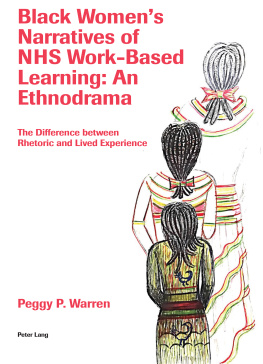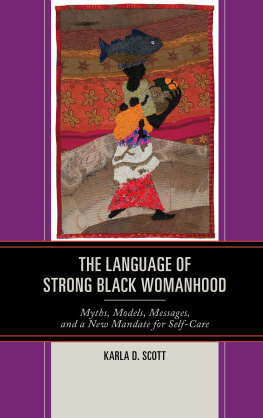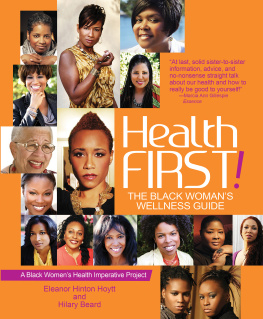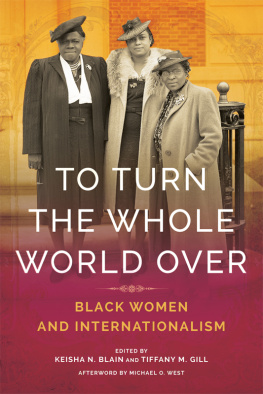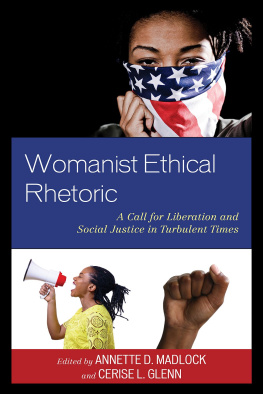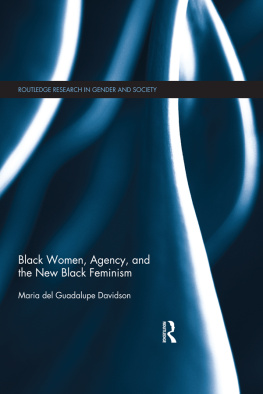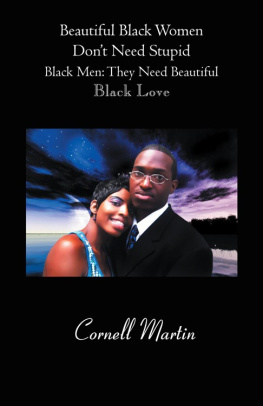Black Womens Narratives of NHS Work-Based Learning: An Ethnodrama
The Difference between Rhetoric and Lived Experience
Peggy P. Warren

PETER LANG
Oxford Bern Berlin Bruxelles New York Wien
Bibliographic information published by Die Deutsche Nationalbibliothek.
Die Deutsche Nationalbibliothek lists this publication in the Deutsche Nationalbibliografie; detailed bibliographic data is available on the Internet at http://dnb.d-nb.de.
A catalogue record for this book is available from the British Library.
A CIP catalog record for this book has been applied for at the Library of Congress.
Cover image: Returning to move forward. By T. T. Taylor.
ISBN 978-1-78997-462-1 (print) ISBN 978-1-78997-463-8 (ePDF)
ISBN 978-1-78997-464-5 (ePub) ISBN 978-1-78997-465-2 (mobi)
Peter Lang AG 2019
Published by Peter Lang Ltd, International Academic Publishers,52 St Giles, Oxford, OX1 3LU, United Kingdom
oxford@peterlang.com, www.peterlang.com
Peggy P. Warren has asserted her right under the Copyright, Designs and Patents Act, 1988, to be identified as Author of this Work.
All rights reserved.
All parts of this publication are protected by copyright.
Any utilisation outside the strict limits of the copyright law, without the permission of the publisher, is forbidden and liable to prosecution. This applies in particular to reproductions, translations, microfilming, and storage and processing in electronic retrieval systems.
About the author
Peggy P. Warren is a transformative educator who is on her third career in the National Health Service. Most recently she has led in the areas of leadership and management development and diversity, inclusion and wellbeing. She has worked for decades in the field of work-based learning, supporting staff predominantly working in low-skilled, low-paid roles who were determined to make the most of second-chance educational opportunities. Her key research interests include black women, diversity and autoethnography. She is committed to making research accessible to wider communities and has had her research reworked for theatre production.
About the book
This work is WONDERFUL! What Peggy is doing is SO important and engaging. I was moved by it. I appreciate and fully recognise the power of the process, the journey, that she was engaged in. Wonderful, engaging, powerful and convincing. I loved the use of music and the emotional engagement pulling out the significance of this work, Peggys passion for it and its importance for future students. It was a pleasure to read and reflect on. This ethnodrama demonstrates Peggys commitment, determination, creativity and passion for making research accessible to groups outside the academy.
The late Joyce Canaan Emeritus Professor Formerly of Birmingham City University
This is an eight-scene drama portraying black women reliving their journey through higher education and work-based learning. Black womens voices are the focus, reflecting on the complexities and dynamics of institutional power, professional exploitation, silencing, subordination and non-transformative education. A black feminist standpoint theoretical approach with an autoethnographic presentation invites the reader into the camaraderie, emotions, tears and laughter of a cohort of mature black healthcare workers engaging in a foundation degree with a promise of promotion. The author captures the voices of the women, weaves in her own account and sets the stories in fictional locations. Using cultural sayings, black philosophy and black music in a creative way, this work offers a platform from which to start discussions on black womens labour in the NHS.
This eBook can be cited
This edition of the eBook can be cited. To enable this we have marked the start and end of a page. In cases where a word straddles a page break, the marker is placed inside the word at exactly the same position as in the physical book. This means that occasionally a word might be bifurcated by this marker.
This book is dedicated to my father, Vincent Charles Warren, who showed me that reaching down to impact another human being was as important as, if not more important than, reaching up for myself. My world is the way it is because of his grounding. He raised a daughter who is likkle but tallawa. Major, as we affectionately call him, will always be my number 1 superhero and inspiration.
To my brothers, Bill, Tony and Butto what journeys! From Birmingham to Jamaica to meet Meger, Bredda, Dawn, Maureen, Paulette and Gee, then back to Britain to join the NHS, Longbridge and the armed forces. Stories and life lessons from our youth will keep us laughing til were old and grey.
To my mother Cissy, your generous heart means youll never be alone.
To my best friend Sister White, every important step Ive taken in the last three decades youve been there with and for me.
I would not be who I am today without all of you.
Thank you.
viii | ix
| Nsoromma Banking model of education. |
| NSAA Education and work did not uplift me. |
| Sumsum No affective education. |
| GyeNyame Education that oppresses. |
| Bese Saka Educated to regress. |
| Aroma Rethinking educational failure. |
| Aya Education uplifts self esteem. |
| Matie Masie Time poor education doesnt work. |
| Dame Dame We were not given student status. |
| Akoben Education struggle and breakthrough. ix | x |
x | xi
This is a truly important book of relevance to all those working towards racial justice in the NHS and beyond. It describes Black womens trajectories of work-based learning in the NHS from their perspectives, using their voices. It goes beyond simpler notions of understanding lived experience as it presents their relived trajectories of extending their thinking, transforming their understanding and rethinking their possibilities. There are painful, moving accounts of oppression, disrespect and devaluing. It hurts to read some of the scenes. However, this is also a story of the heart-warming, inspirational, transformational relationships amongst Black women striving to change their life chances, as well as those of their wider families and communities. It is an inspirational read!
Black Womens Narratives of NHS Work-based Learning An Ethnodrama is as engaging as the best of novels. Simultaneously, it is a beautiful vehicle for understanding the self and others in relation to a colonial exercise of power over. Dr Peggy P. Warren has crafted classical academic data artistically, rendering this book accessible to many who would not typically engage with such a work. It meets, surpasses and transcends the requirements of academia. This book stands as a rich source of information, paradigm-shifting conception, new imaginings and decolonising possibilities. Drawing upon traditional, liberational and cultural traditions, the scenes are deeply educational as they delightfully and elegantly expound the womens embedded and embodied ways of knowing.
These womens experiences are, in many ways, a microcosm of the experiences of Black people throughout the NHS. For the wider system, it demonstrates how having good intentions without deep understanding is not enough. In the absence of committed, reflexive partnerships that transform aspirations and skills into reward systems, affective pedagogy and notions of a redefined organisational identity, nothing will change! The promises of equality all too often lead to fruitless activity that breaks hearts as it fails to deliver. xi | xii

